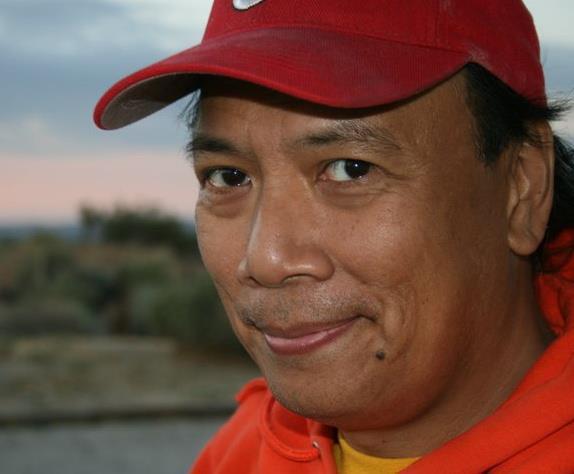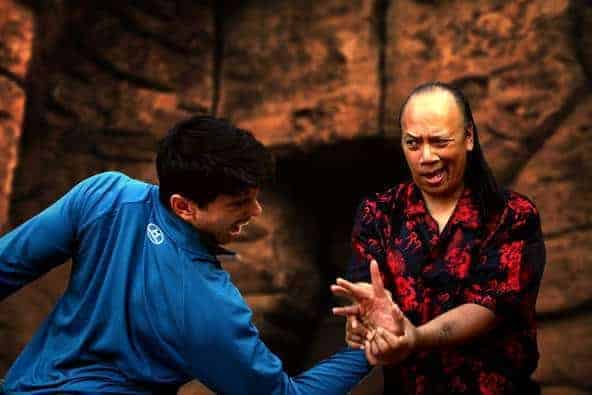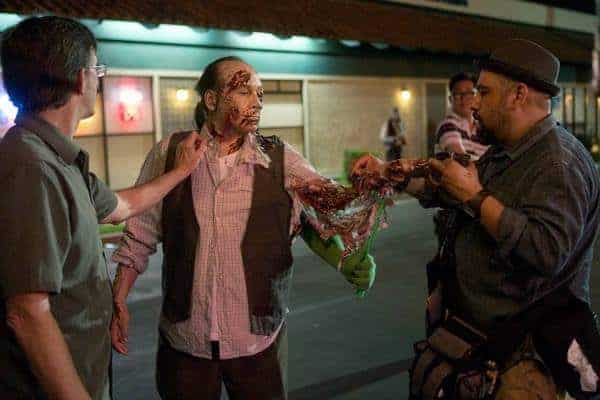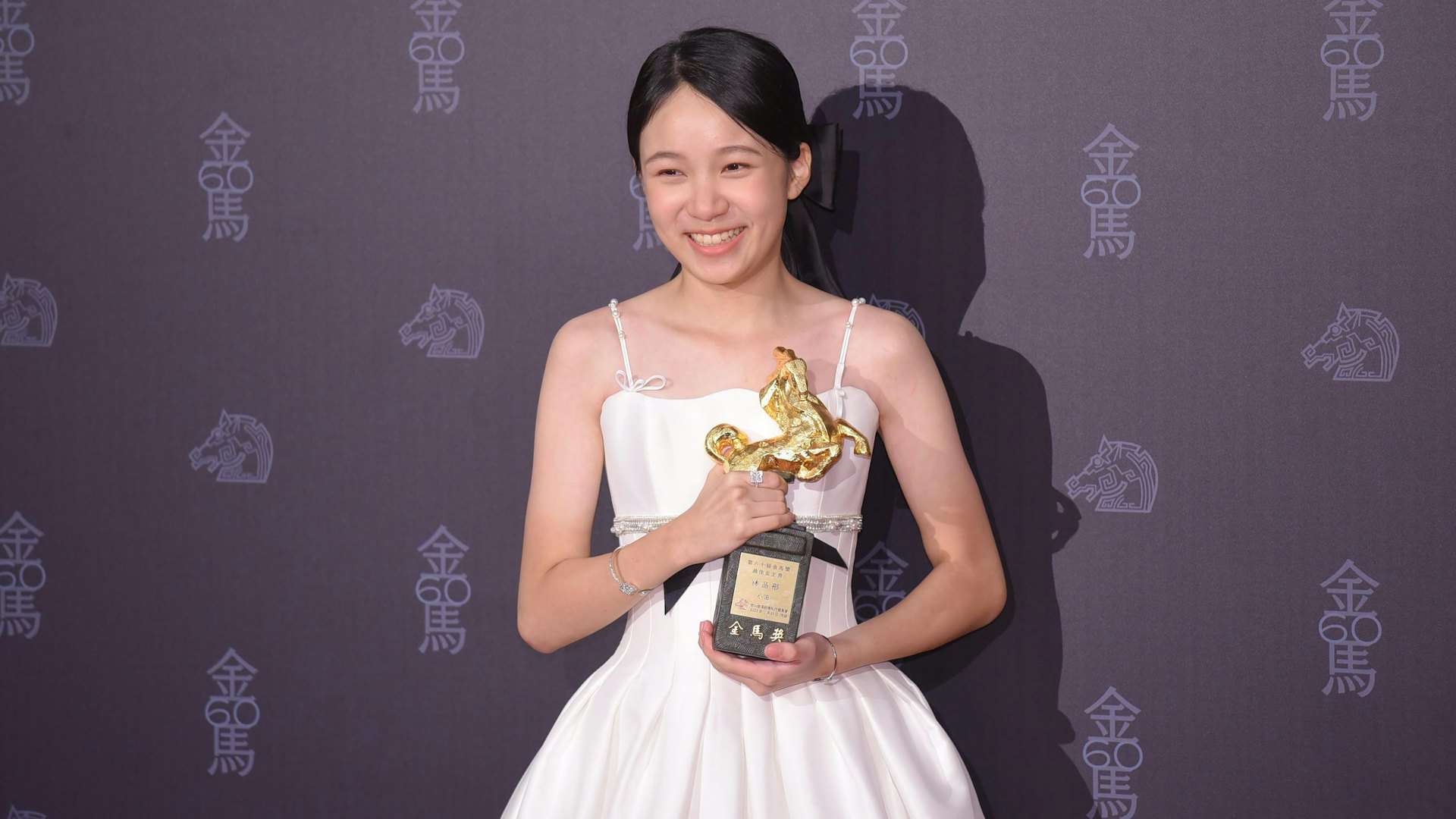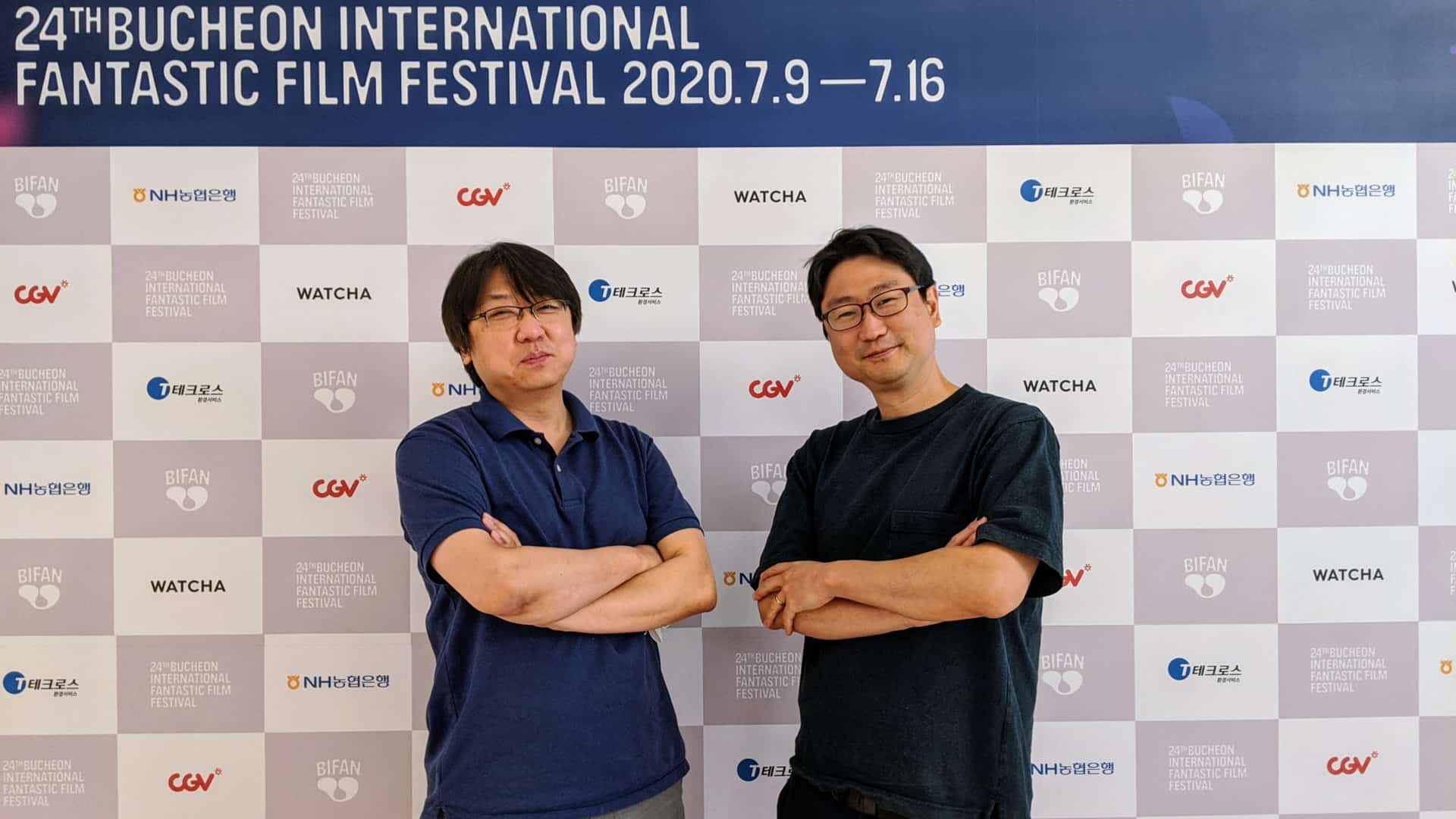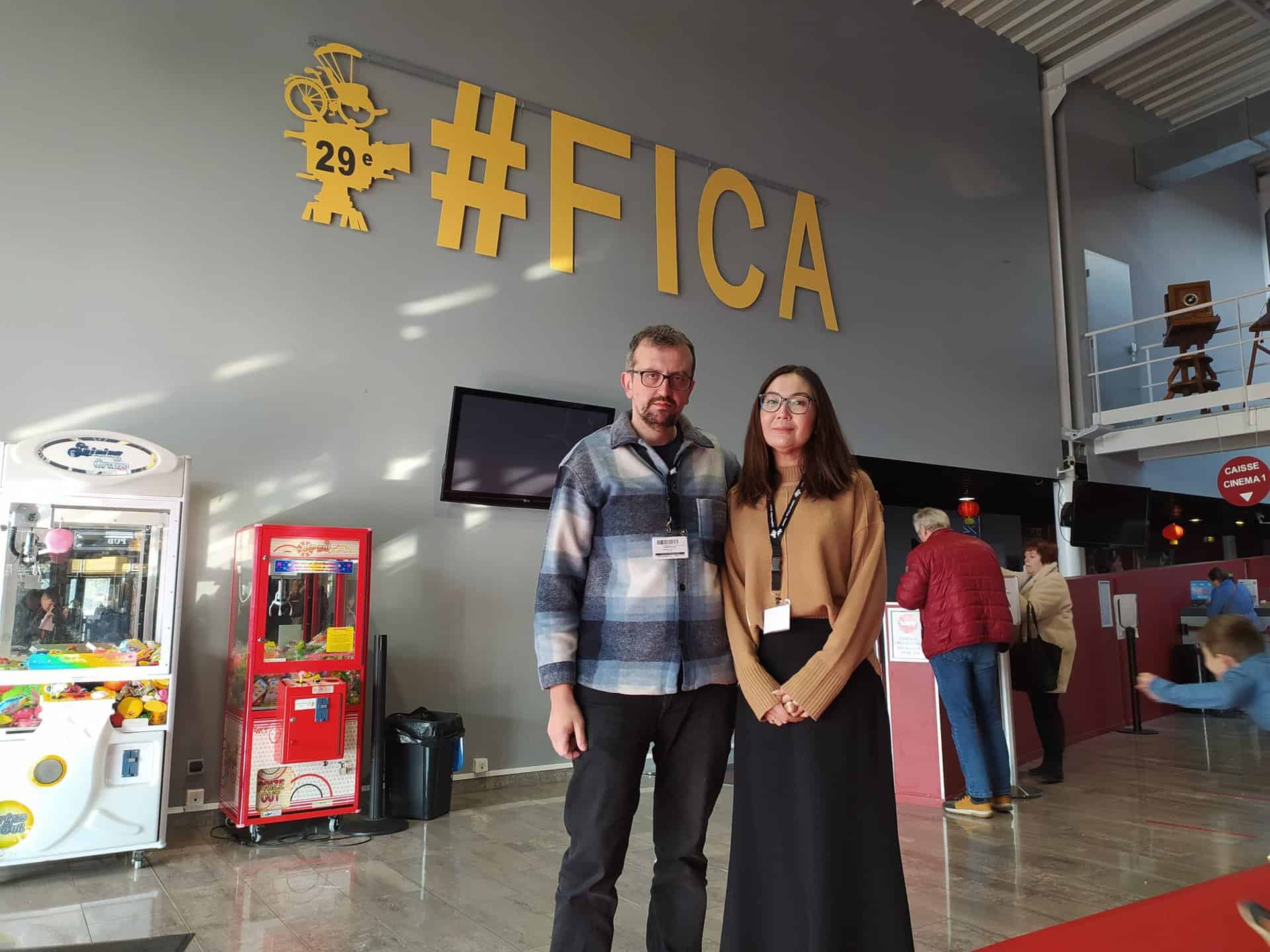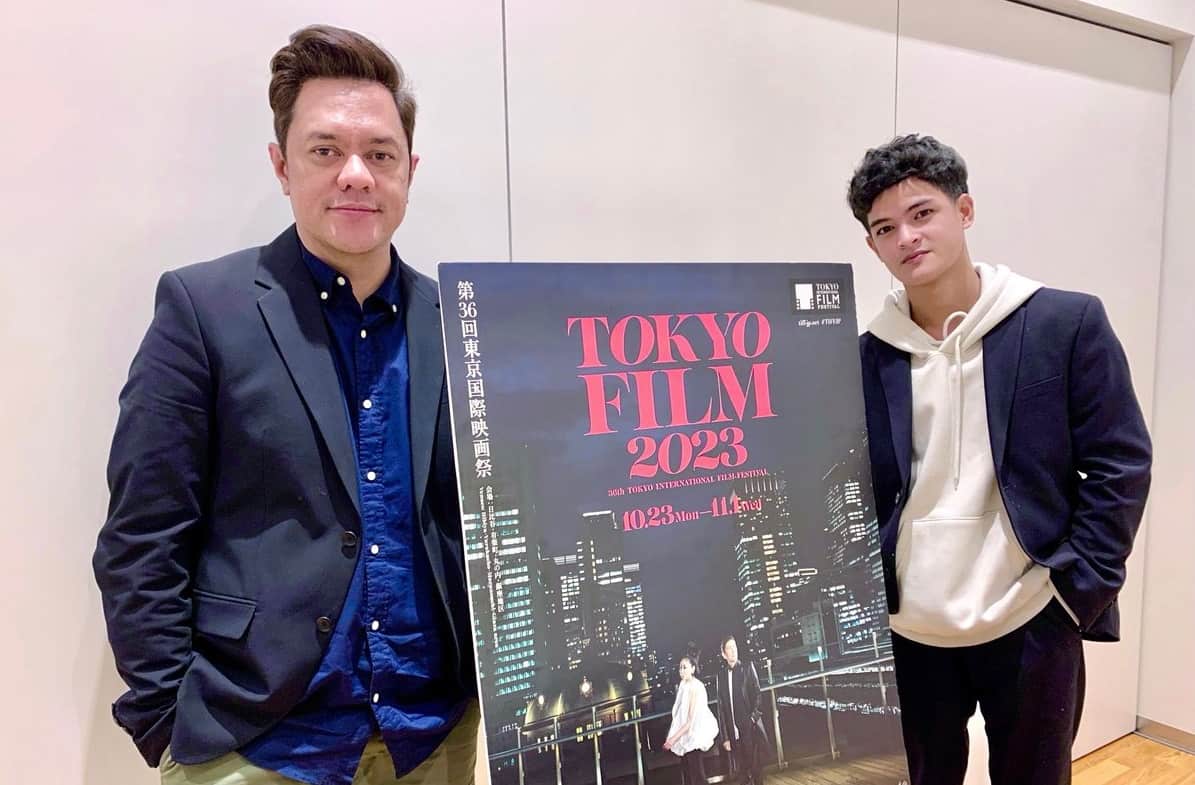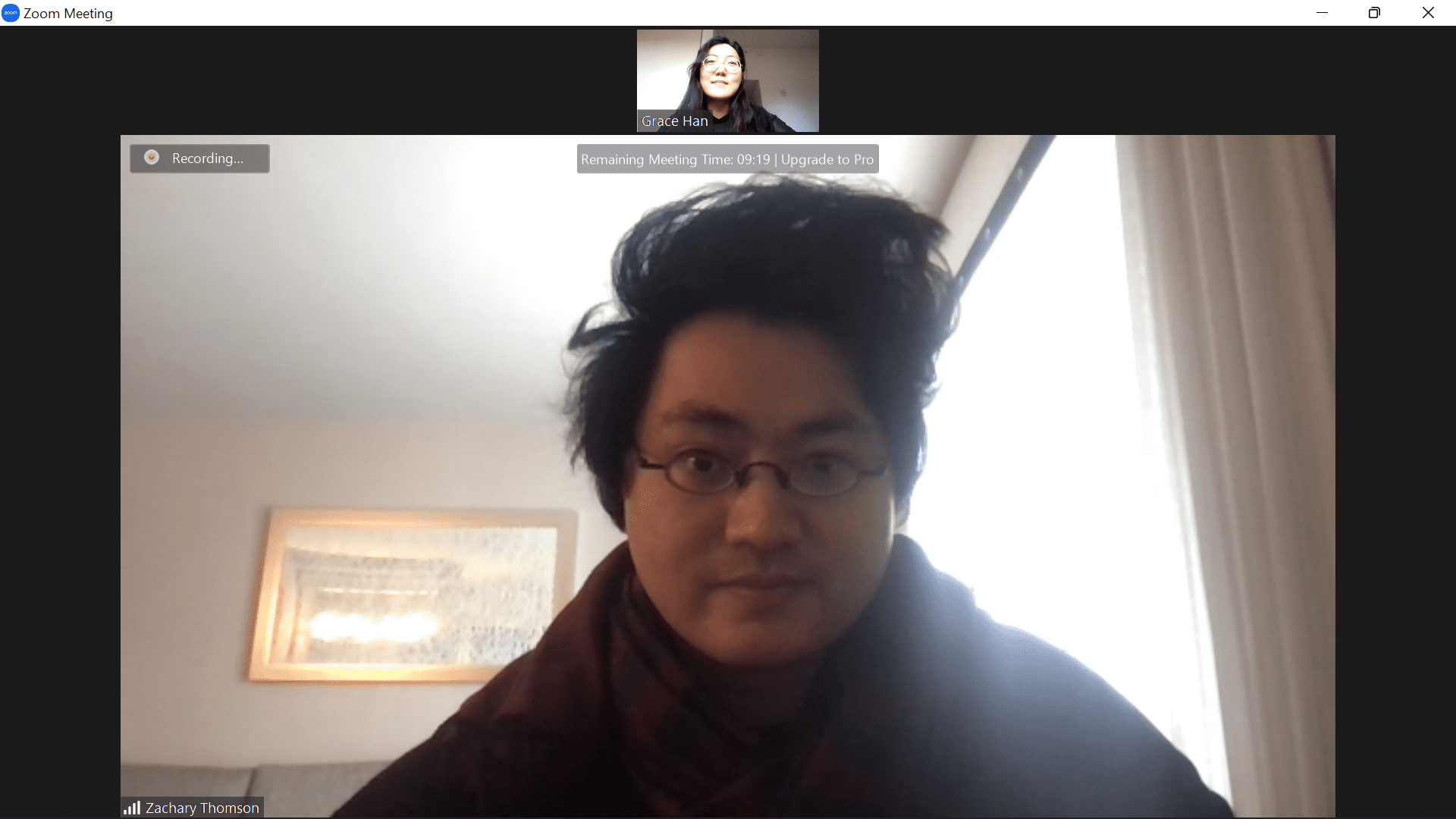John Kreng is one of the most hard working actors/stuntman/fight and stunt corrdinators working in the industry today. Through his time working in the movie industry, John has worked with some of the very best which includes Jet Li, Yuen Wah, Tsui Hark, David Carradine, Steven Spielburg and many more outstanding talents.
John Kreng is also the author of the in depth book on screen fighting called Fight Choreography: The Art Of Non Verbal Dialogue, he was a cast member of The Jade Trader which went on to win the most outstanding cast performance award at the 10th Action on film, International film festival. John, also has years of Martial Arts experience behind him, dedicating his time learning many different styles and been taught by some of the very best masters from around the world (Which he will speak about in this interview).
John also worked on the famous Comedy Store for over a decade, where he would learn and watch legends share the stage such as Robin Williams, Richard Pyror, Chris Rock and Jim Carrey. John's career has been nothing short of incredible and now i welcome you to read this amazing interview with the man himself, Mr.John Kreng, as i dont want to give to much away before you enjoy this incredible journey with John's career.
Interview With John Kreng
1. First of all, could you take us back to when yourself, John Kreng was a kid and first knew you wanted to get involved in the Martial Arts world. Also what did your parents and friends say about it at the time?
J: Growing up, it was essentially my mother and I because my father died right before my first birthday. She was overprotective of me because I was always sick. Growing up, I was anemic and had asthma. So as a result, I was not a very physical kid and was the typical “last kid to be picked for team sports.” To make things worse, it was during the height of the US involvement of the Vietnam war. So growing up in a predominately Caucasian, conservative, middle class suburb in Maryland right outside of Washington, D.C. wasn't the most nurturing of times and places for an Asian-American kid. So for me, trying to fit in with the other kids was not an easy thing. I got picked on almost a daily basis because I was being perceived by a lot of my classmates and adults as “the enemy.” It really frustrated and confused and I'd ask myself, “How can I be seen as ‘the enemy' when I was born in the US just like the ones that are picking on me?”
The Martial Arts was something I was always curious and intrigued about it seeing it in the James Bond movies and seeing Bruce Lee in The Green Hornet TV show. But I believed in the comic book myths and hyperbole you would read about it being a “forbidden, indestructible, deadly secrets that only a select few know!” So I never pursued it.
One summer, we were visiting some of our relatives in France. One of my Cousins came back home one night with some big bruises on is arms. I asked him how he got them. He told me he was free-sparring with a friend. It did not make sense to me at the time. If he was a friend, why would they fight? He started explaining to me the principles of the martial arts, where you are always challenging yourself to better yourself through training. He was the first person in my life that exposed the myth and told me the actual process with learning a martial art and it wasn't a daunting task as I imagined it to be. He told me that he was a black belt and that a majority of my cousins are black belts. I would later learn that one of my cousins competed in the S.E. Asian Games and lost in the semi-finals to Chen Kuan Tai. Another cousin was one of the first female Muay-Thai stadium champions in Thailand, and an Uncle was a coach in some capacity for the Canadian Olympic Judo team.
I remember my first lessons like it was yesterday. Why? Because I was terrible at it! I had a hard time even with the simplest of things, like stepping and doing the twisting punch at the same time. I was also very uncomfortable because for the first time in my life, there was this man (the instructor) who watched EVERY move and step I made, while constantly correcting me. But I was diligent about my training and eventually picked it up and slowly became competent with it.
The martial arts have changed since I started in the 70's. There were not many schools who taught kids, so I had to train with grown adults. Even though the kung fu boom was popular, people still thought of the martial arts as a cult or some weird religion. Today, the teachers try to keep you motivated and tell you something positive like “Keep trying!” or “Don't give up!” It's treated more like an after-school recreation more than a martial art. But back then, my Instructor told me to not worry about getting a Gi (uniform) because I won't make it past my first belt! After finished the lessons with him, all signs were pointing towards that this was not something I would excel in. But this voice in my head said, “Stick to it and it will take you places you cannot imagine!” I'm glad I listened to that voice because it proved right in the end. I guess the Instructor was trying to give me his version of “tough love”?!?!? Whatever it was, it worked for me. I feel there's good and bad points to both old school and modern ways of teaching the martial arts. But we can discuss that all day.
My mom was struggling to make ends meet, so she could only afford introductory lessons. As a result, I bounced around from school to school. Once the instructors got to know me, they realized I was eager to learn, and easy to train, so they did their best to keep me on board as long as they could (usually several months or longer if I was lucky) until the owner of the school would find out and asked me to pay or leave. I was pretty obsessed about the martial arts, and I was always thinking, training, watching a movie, or reading about it. If someone I met trained in the martial arts, I would ask them to show me what they learned. I couldn't get enough of it!
One day, I was helping a friend pick a school for him to train, and the head instructor, Mike Kinney, recognized me from one of the other schools I was studying at. Even though I was not familiar with the style, he felt my basics was strong enough and offered me an assistant instructor position. I essentially helped all the instructors with the kids class, and in return I would train in the adult class for free. I stayed with the school and eventually got my black belt there.
As far as my mom was concerned, she was as supportive when I first got involved. She thought it was a healthy hobby that kept me out of trouble. But she's the typical Chinese tiger mom, who expected…sorry… I meant.. demanded…sorry.. I mean forced me… to college and become a doctor, lawyer, or engineer! However, it was not in my DNA to do any of that. It became a problem with her, when my love for the martial arts was no longer a hobby, but a full on obsession in my late teens-early 20's, I wanted to teach and own a school, but my mom did not understand why. But I went ahead and taught and competed in tournaments against her wishes.
As I got a little older and was able to work and earn money, one of the most important things I've done in my growth as a martial artist and a person was save up my money for a year to move down to Atlanta to train with Keith Vitali, who was the #1 tournament fighter in the US at the time. Later when I moved out to LA to make it as a stand up comedian, he was my roommate for about a year. He was very supportive and would come with me to all the comedy clubs I would perform at. If you've never met the guy, Keith is one of the most optimistic guys you'll ever meet. From him, I learned what it took to be a “Champion in life.” After 30+ years of knowing him, he's still a great friend and someone I still bounce off ideas and get advice from to this day.
The Martial Arts gave me all the typical things a student gets when they stick to it long enough and have a good instructor- self-confidence, awareness of your surroundings, body-mind coordination, goal setting, etc. What made it special to me was the understanding of Asian martial arts history that led me to discovering the reasons why they did things differently than in the West, which led me to appreciate and understand my own culture and traditions and no longer feeling ashamed of it.
2. When growing up, what did you think of Martial Art/Kung Fu movies and who on screen made you a fan of the genre and say “I want to have a crack at this”?
J:Growing up, martial arts movies was an escape for me and I went to the theaters almost every week to get my fix. It started for me in the grind house films and as I grew older they would have midnight screenings of movies from Hong Kong, which eventually grew into first run Chinese movie theaters. I went to these movies theaters pretty religiously from when I was a kid until I was in my mid-twenties. I went to build my confidence up by seeing another person that looked like me up on screen so I would not feel bad about myself from all the taunts and fights I got in school. As I got older it eventually became a clique of like minded people who appreciated the genre. Martial arts and grind-house movies back then were not appreciated by the general public like they are today. The general public turned their noses up to seeing martial arts and grind-house films back then and saw it as a slight step just above porno movies because of the bad dubbing, poor film stock, wooden acting style, cheap excuses to fight, and an exploitative nature.
Growing up in Maryland was pretty boring for me. We were expected to grow up, go to college, get married, have kids, and get a government job because it was safe and stable. It was what the majority of people in the area did since we were minutes away from Washington D.C. If you did anything that strayed off that edict, everyone looked at you weird, as if you were a leper. I felt the conservative attitude of the area was choking me mentally and spiritually, but I did not know what to proactively do about it at the time except go to the movies and train in martial arts.
Watching kung fu movies in the 70's was still very new to Western audiences at that time. They actually got a sense of euphoria from watching the performances on the screen. If it was a good fight scene they would not sit still. They'd scream, yell, and talk back to the characters on screen. And there were some movies where the poster was more exciting than the actual movie. Sometimes their comments were so funny a times it would turn a serious movie into a comedy! Once the movie was over, you'd walk out into the lobby and you would see friends trying to do the moves they saw in the movie on each other. It was that infectious!
It was that feeling and experience that stuck with me ever since. In the back of my mind, I thought to myself, “How cool would it be to have the creative power and influence to affect people on a global scale?” It was much like going to church and walking out, feeling 10 feet tall and inspired- ready to take on the world! That feeling has stuck with me ever since and it's something I try to bring into an action scene when I work on a fight scene for a project. It's hard to do nowadays because it's no longer new to their eyes…but it still can be done!
In 8th grade, I shot a “martial arts film” with my friend Bill Kirk on Super 8mm film for our media arts class. We essentially ripped off “Way of the Dragon.” Fight choreography? We did not know what that was! We just free sparred each other..and VERY badly too! Thankfully the film is lost!
Also for that class, my teacher, Mrs. Sherion Cosby, also gave me an assignment to watch “Seven Samurai” that was showing on PBS that weekend and write a report on it and give it to her that following Monday. The best way I can describe the feeling for me was that it was an “awakening.” It was hard to watch other films afterwards where the action scenes were gratuitous and not an integral part of the story and character development. I was instantly a Kurosawa follower!
As far as “the one who made me a fan of the genre” is concerned, it was definitely Bruce Lee that got me hooked. He has and still is a huge influence on me when it comes to performance, choreography, and life in general because of his progressive philosophy towards life. I saw all of his movies about 30 times and Enter the Dragon over 60 times as a kid growing up. I was a Bruce Lee fanatic growing up and it paid off for me when I was writing for Kung Fu/ Tai-Chi magazine when they asked me to interview Bruce's students, family members, and people he worked with for a special issue commemorating the 25th anniversary of “Enter the Dragon.”
As I got older, I discovered other choreographers that continued to fan my creative fires like Bob Simmons (the 007 Bond films) Gam Ming (aka Tommy Lee), Lau Kar Leung, Robert Tai, Yuen Woo Ping, Sammo Hung, Corey Yuen, Yuen Cheung Yen, Tong Gai, and of course.. Jackie Chan (to name a few). I studied their choreography as much as I could, seeing their movies many times in theaters, videotape, laserdisc, DVD, and Blu-Ray over the years. At first, I would lose myself in the marvel of their work. After repeated viewings, I would go into the theater and ask, “What makes their choreography better than the others?” As a result, I would break down what they did by studying their frame composition, edits, camera angles, story that led up to the fight, and their choice on why they used certain techniques, as well as the emotions placed behind them. I would also observe the audiences reactions to everything they saw on screen. Over the years I would also study filmmakers like Akira Kurosawa, Kenji Misumi, John McTiernan, Sergio Leone, John Woo, Walter Hill, Sylvester Stallone, Paul Verhoeven, Tony Scott, Ridley Scott, Sam Raimi, Robert Rodriguez, and John Sturges, to name a few.
I guess you can say seeing those movies over and over again was much like the formative years for me, much like going to film school. But I did not know that at the time. I could not explain it to myself and others why I was so compelled to doing this with a good part of my free time for all those years. It was a compulsion for me. I thought (in the back of my mind) my interest in action films was going to fade because something had to stop, because I eventually had to “grew up to be a responsible adult” with a proper job and responsibilities. I was so wrong, thank goodness!
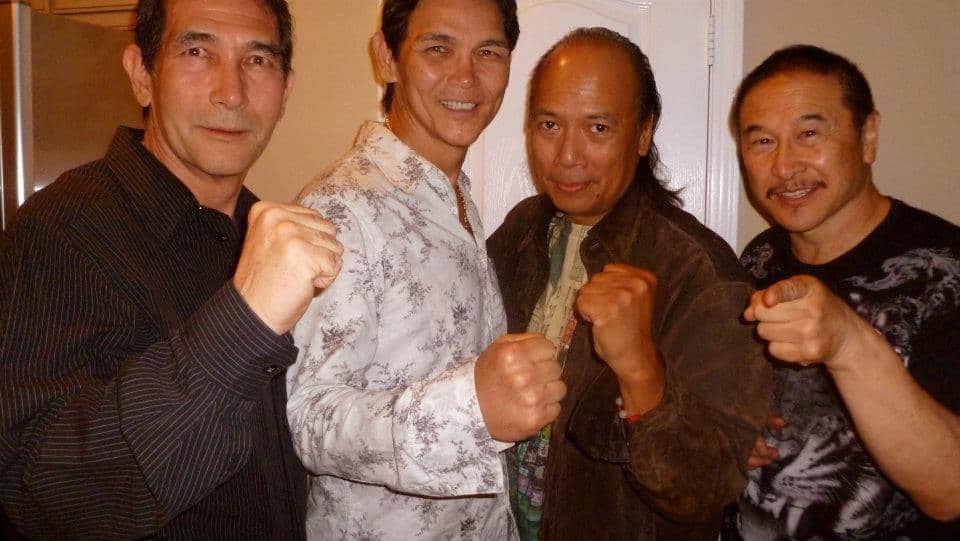
3.Going slightly onto your time as a comedian on the stage, you moved from Washington to New York and appeared for 10 years on the Comedy Store. What was it like being with such amazing talents like Jim Carrey, Richard Pyror, Robin Williams and what do you feel you
gained by watching and being around them from that time that you took into later life on movies or life in general?
J:I got into stand up as a dare from Mr. Forsythe, my art teacher, in college in Maryland. I tried it a couple times but did not feel any creative or deep emotional satisfaction from it. It wasn't until I was attending Parsons School of Design in NYC and one night I saw Billy Crystal recording his comedy album at The Bottom Line, I realized that I needed to drop everything and give this a shot. I finished up the semester and went home to Maryland and pursued it 100%. At the time I was trying to find my comedic groove with some other local stand ups you might know like Martin Lawrence and Tommy Davidson. I decided to move out to LA about 18 months after I left art school.
In those days, being a regular at The Comedy Store in Hollywood meant you were chosen to be part of an exclusive group of elite stand up comedians. It was a place to experiment and try out new martial for your upcoming TV appearances or comedy specials. It was a lot like going to college at Yale or Harvard for stand up comedians. You got to see and work with the elite of the business work every night and hoped it would rub off on you and you could move up and on in the business.
The comedians you mentioned were big brothers to me when I was at the club. I'll give you an example… When I first arrived to Los Angeles, I was picked up as a regular performer within the first 6 months I arrived in LA by the club owner Mitzi Shore. It was somewhat of an artists' colony. She did not like generic comedians who did not have a sense of uniqueness and individuality about their material. My close friend and comedian Charlie Hill (RIP- who also performed with me there) told me, “You spent 10 years of your life playing at the toughest comedy club in the world!” When you think about it, during that time it was one of the toughest clubs to play in because of the caliber of world class comedians at the time. On any given night you would see Louis Anderson, Roseanne Barr, Bill Mahr, Dennis Miller, Eddie Murphy, Arsenio Hall, Chris Rock, Robert Townsend, Keenan Ivory Wayans, Damon Wayans, Andrew Dice Clay, Bob Saget, Steve Oedekerk, Cathy Ladman, Rita Rudner, Dave Tyree, Steve Kravitz, Bobby Collins, Charles Fleischer, Bobcat Goldthwait, Eddie Griffin, David Allen Grier, Gilbert Gottfried, Dom Irrera, John Pinette, Argus Hamilton, Gerry Bednob, Paul Rodriguez, Gary Shandling, Charlie Hill, George Wallace, Bill Hicks, Robert Schimmel, Howie Mandel, and Paul Mooney (to name a few). I've seen so many people come and go because they could not handle the pressure of performing alongside this caliber of talent every night. As for me, I'm a fighter at heart and love a great challenge. There were nights I was successful and nights I was not.
My relationship with Robin was a blessed one. When I first moved to LA, they were casting the Asian male lead opposite of Robin Williams for “Good Morning Vietnam.” The “People behind the desk” told me that for this role I was going to have to be “on my toes” because of who I would be acting opposite of. I told them I could handle it well because I was a stand up comedian and a new member at The Comedy Store. They didn't believe me. Then when I walked in for the final audition and read with Robin, he smiled, gave me a big hug, and said to them, “He's the new kid at The Store!” I tried my best to not laugh as they sunk into their seats!
Of course, I did not get the part, but I saw Robin at the club afterwards. He said that he was sorry they did not choose me and that I should not give up. Unfortunately, I didn't follow his advice because many of the roles in Hollywood at the time were very one-dimensional and stereotypical. To me, it really was not worth pursuing. I how would I face my family who sacrificed their life and livelihood so I could have a better shot at a good life by being the butt of the joke by faking a stereotypical (not authentic) accent playing one dimensional roles? So I stuck to my stand up because I could say and do whatever I wanted… as long as it was funny! But times have changed for the better. Asian-American actors are getting better roles today.
I later worked with Robin on “Hook,” where I did stunts. It was a great time for me because I did “The Master” about 6 months earlier and I was hired to work on this big feature by my friend Dan Speaker who was the sword master. My stand up career was also taking off too and I was offered my first national TV appearance on “Into the Night” (a late night talk show) at the same time. For three months, I was on “Hook” during the day, then at night I was at The Comedy Store working out my TV spot. I didn't need an alarm to wake up because I was happy, eager, and ready to take on the day. I guess that's what happens when you do what you love in life!
I've had to follow (meaning- go on stage and perform after a comedian finished their set) Robin numerous times. We called them “Death Spots” (meaning you were essentially going to “die on stage” because you can't top the comedian that went on before you). I remember the first time I had to do that, Robin looked over to me and shook my hand, smiled with a glint in his eye, and said, “I warmed them up! They're ready for you!” LOL! Each excruciating minute I was onstage felt like an hour! I had to learn to believe in my material and keep moving on!
I knew Jim Carrey right before he went on be a cast member on “In Living Color.” He was fearless, experimental, and somewhat dark with his stand up at that time. The Comedians at the club would always love to watch him and see what he was going to do to mess with the audience's collective head. He was never catered to the audience for a laugh and led them into seeing his view on life. It was fun watching him because he was very brave and was not afraid to take chances. There were times he'd just do things just to make himself laugh, which is a great freedom to have as a performer. He took his fearlessness of pushing the envelope with his stand up and was able to make the jump into movies. He's a great guy and very happy for everything he's accomplished so far. I'm hoping one day, we'll work on something together. His physicality and sense of timing would be a lot of fun to work with on the action sequences.
Richard Pryor was someone I idolized and admired since I was a kid. He was very much of a quiet and “to himself” type of guy, but when he talked to you… you listened. He saw my act one night and critiqued it, while passing onto me priceless advice in aiding the progress of my stand up. He'd catch my sets later on and he'd nod with approval with my progress.
I remember when Richard first returned to the club after being gone for several years. He came up and asked Mitzi (the owner) if he could come back to the club and perform. She was shocked, laughed, and replied, “Of course! This is your club too! You helped make this place!” That's how respectful and unassuming he was. When he went up on stage, all the comedians would stop what they're doing and watch him. At first he had only 5 minutes of material that was just so-so. Then he'd hone and polish it every night. By the end of the month he had a solid hour of material. What bothers me about the press and people outside the business is that all they talk about is his drug abuse and womanizing. There's a lot more to the guy than that. He was truly a master of the art form and he changed how stand up is done today. I miss him dearly.
A lot of people from the outside looking in at my career thinks that I did a lot of different things in my life from martial arts to stand up to game design, to stunt coordinating. What a lot of people don't see is there are similar principles in martial arts and performing comedy in front of an audience. Competing at open karate tournaments also helped tremendously. There's setting up your opponent to scoring on them, which is similar to setting up the audience with a joke. If the audience or opponent know what you are going to do, you're not going to succeed. Believing in your techniques to pull you out of a jam is the same as believing in your jokes onstage. Presenting yourself with a calm cool presence when you are about to perform a kata for the judges and audience is the same attitude you have to have when you are about to hit the stage and make the audience laugh.
I'm very fortunate to have had this experience. It's changed my life for the better and it's given me a skill set that I can use in other aspect of my life in this business.

4.Asian Movie Pulse readers would love to know about your experience working on the movie The Master, with talents such as Jet Li, Yuen Wah and Tsui Hark. What experiences can you share about your time working on that movie?
J:I was originally meeting the Executives at Golden Harvest to shoot a comedy special in Hong Kong that they would sell to HBO or some cable TV station. I was going to do my act in Chinese (Cantonese) and in English. Unfortunately, the project stalled, but they still wanted to work with me in some type of capacity. They told me they had two projects that they were currently working on. One was the first “Teenage Mutant Ninja Turtles” and the other was an untitled Jet Li movie (that would lester on be known as “The Master”). I told them I wanted to work on the Jet Li movie as long as I got to fight him and if they will teach me how they did stunts. I was surprised they agreed since I had little experience.
Jet was a very quiet person on set when I first met him. I had already heard about him from my friends who were going to China to learn Wu-Shu and then saw him in his first three Shaolin Temple movies back in DC before I moved out here and thought he was just incredible.
I remember Jet was the first guy I saw do a b-twist (but with 2-3 spins in the air, parallel to the ground before he lands) on film. I always thought it was a camera trick or they used wires. So when we are on set rehearsing one of the fight scenes where he beats me up and I was supposed to fall down and play dead, then goes on to beat up the next guy with that B-twist I saw him do before. I HAD TO SEE him do this! So when he killed me in one of the fight scenes, I was laying on the ground playing dead with my eyes squinted so the cameras could not see that I was looking. Well, the cameras rolled, he killed me, I fell, played dead, squinted to see his next move. I could not believe what I saw and I knee-jerked reacted and said, “Oh my God!” Then I hear Tsui Hark immediately yell, “Cut!” He walked over to me and yelled, “You're supposed to be dead! Do dead people say ‘Oh my God'?” I apologized to him. I apologized to Jet because he had to do the scene over again. I said, “I'm sorry! But I've seen you do that move before in your movies and I could not believe my eyes that it could;ve been done without any type of assistance with wires or camera tricks! But man, that was awesome!” He smiled and grinned that I was appreciative of his skills.
We shot about 10 different fight scenes in 2 days. In the final released cut of the movie, you will see me fight him about 3 times and wearing different clothing because it was the culmination of those fights that were choreographed. It was a time in Hong Kong cinema when the performers made actual contact with each other. Jet beat me up so many times in those two days that I could not walk for about a week after we were finished.
I remember when we wrapped on the second day of shooting, I was still on an adrenaline rush from both days. Later that night, I had to get ready to perform at The Comedy Store. Usually, I like to pace the stage like a panther because I've got all this pent up energy right when I go up on stage ready to unload my stuff onto the audience. As I got to the club, I felt my legs locking up and cramping on me and started to feel all the bumps and bruises I took from the two days of fighting him. Let's just say that my show that night was more subdued and much like a fireside chat. Luckily, there was a barstool onstage and I did the whole show sitting down. Needless to say, I was laid up and in bed for about a week after that.
Working on that film was an invaluable experience for me. It was a great honor to have had worked with Brandy Yuen Jan Yueng 袁振洋 (Fight Director and Yuen Woo Ping's younger brother). For me, it was a nice homecoming (of sorts) for me where (later on in my career) I had the honor to help his brother Yuen Cheung Yen (袁祥仁), Stunt Coordinate the LA Times commercial they did on him with Ben Affleck. And there's Ku Hin Chiu 谷軒昭) aka “Dee Dee” who doubled Jet for certain moves during some of the fight scenes I did with him because he broke his arm in the middle of filming. He's an incredibly talented performer and went onto be head wire technician for Yuen Woo Ping and is now the Martial Arts Coordinator on the TV show “Into the Badlands.” They also had a few guys from Jackie Chan's stunt team that come onto help teach us (I wished I could remember all their names- so please forgive me) as well as collaborate on the action.
I have to say that working on this movie was a miracle for me. That's because, I had a very bad groin tear that made me retire from tournament competition. The doctors told me they would have to operate and I'd be lucky if I could touch my toes afterwards. My instincts told me to not do the procedure. I found art and stand up comedy to focus my energies on in the meantime. But when I got to Los Angeles, I met a Chiropractor who promised he could put my leg back together without any surgery and that I would be better than I was before I got injured! The therapy sessions were intense and grueling and went for about a year. Then one day, he told me that I was able to train again. It about 3 months later I was offered the role in ‘The Master.”
My experiences on this film was a really important part of my life where I got to see first hand and participate in the creation of Hong Kong style fight scenes. I'm always interested in the creative process (no matter what medium it is) and how each person has their own way of doing things. Needless to say, it was pretty awe inspiring for me to see how they worked and created fight scenes from nothing into something incredible! I would not be doing what I am doing now if I did not have that experience.
5.You are known around the world also for your work as a stunt man. From your experiences over the years in film making, what were some of the most difficult stunts you had to perform and what were the top injuries you sustained?
J:Too many to describe here. Coming into this business, I already had injuries from competing on the tournament circuit. It's definitely a life that is different every single day. It appeals to my ADD I suppose.
6.What do you think of the Martial Arts industry today? Is their talents out there who can carry the torch for years to come from legends such as Jackie Chan. Bruce Lee, lau Kar Leung, Sammo Hung, Jet Li and Yuen Biao?
J:In China, I think they are no longer taking creative choices in their movies anymore. It used to be that they'd take a chance on new talent because the budget was low back in the 80's and early 90's. in Hong Kong The vibe back then was, “Let's try this and see if it works!” Sometimes it did and often times it didn't. But nevertheless, you felt a vibrant, ingenious, and creative energy that expected a lot of “willing suspension of disbelief” from the viewers. But that's what made it a lot of fun when you went to see these movies. It was much like the 70's Grindhouse films you would see after filmmakers were allowed to after the restrictions put on them with the Hays Code. Both of those film eras made something out of nothing and that exuberant energy is what the audiences got off on!
However, now, the film budgets in China are much bigger I see they are only using tried and true talent without really taking much of a risk with newer talent. So as a result, the new talent does not get a chance to grow and develop. I understand the producers and film investors don't want to lose money and make back their investment. There is a huge risk factor when investing and making a movie. That is what I feel is one of the major reasons that is killing the martial arts film genre over there. There needs to be somewhat of a balance- a middle ground to develop talent and a following that I don't see happening just yet. Investors also need to understand how movies are made and not interfere/detract with the filmmaking process. It's a delicate balance it's different with each project that everyone struggles with.
Story is another issue. I feel they are trying too hard to appeal to Western tastes and it ends up being a weird combination of Eastern and (their interpretation of) Western sensibilities, so it loses it's emotional integrity and robs the audience of an innersole experience. This is also an issue with a lot of the big blockbuster action films coming out of the US too. Most big action films are devoid of any true emotion and the action lacks consequence to get the audience involved.
7.What projects have you been working on lately?
J:On October 30, 2015 I will be seen in Paramount Pictures “The Scout's Guide to the Zombie Apocalypse.” In the big feature, I was an actor and stunt performer. I've also been stunt coordinating and 2nd unit directing several TV pilots in the past several months. I'll keep you guys posted on the progress of them!
Your readers are getting an exclusive on this news and the first to know about this!!! Next month I will be working with Don “The Dragon” Wilson and Marcus Taylor (who played Shug Knight in “Straight Outta Compton”) in “Paying Mr. McGetty.” The Writer/Director of this Action/Comedy is Michael Baumgarten who previously wrote and directed “The Martial Arts Kid” starring Don and Cynthia Rothrock. Don is someone I watched fight as a kid growing up and it's a great honor to be asked to be the Fight Coordinator on this project. Marcus is a good friend who I have worked with on a TV pilot a couple months ago. What is going to make this film different is… For the first time, Don “The Dragon” Wilson is going to play the bad guy in a movie. And Marcus will play the good guy- which will be a change from what we saw of him in “Straight Outta Compton!” You read it first here! So spread the news!! There are some other things I am working on that I will let you guys know sooner more than later. So stay tuned!
8.Where do you see yourself in the next 10 years and do you have any dream projects you would like to achieve in that time?
J: I'm always working on projects as a 2nd Unit Director, Stunt Coordinator, and more recently an actor. I think I will always be doing this, so I am always looking for that great project to be a part of to help make it come to life!
To be more in control of the creative content, my producing partner Melissa Tracy and I are in the process of starting up a production company. We have some screenplays that I wrote and were optioned to Hollywood studios that were reverted back to me that we are going to produce and direct. We are also planning on distributing creative content also.
We have already completed a 30 minute educational video for filmmakers called “Fight Design,” where we talk in front of a live audience of film professionals about what a filmmaker needs to know about putting together a fight or action scene for their shorts or features. In the video, we also got established professionals like Jeff Imada (Bourne series, Fast 7), Angela Meryl (Kill Bill, Skyfall), Gary Daniels (Expendables, City Hunter), Ben Ramsey (The Big Heat, Blood & Bone), Robert Lagato (Oscar award winner, Hugo, Titanic), Derron Ross (Deadpool, Star Wars: The Old Republic), Carl Bartels (Taken 1-2-3), and others to talk about what they do.
9.When you look back at your amazing career so far, what are you must proud off?
J:There are a few things…
1- BATTLE B-BOY was fun because I was able to collaborate with some great dancers and turn their moves into dance fights. That was a lot of fun to do because everyone on the cast and crew genuinely liked each other and we all helped each other out to get the movie made. It's really rare. I know it might sound weird but sometimes you can work on sets where no one gets along and the tension is very thick and makes the work conditions pretty miserable. It all starts from the top. Fortunately we had a Director Frank Lin, who we would do anything for. He was that great of a guy!
2- My book FIGHT CHOREOGRAPHY: THE ART OF NON-VERBAL DIALOGUE. I was honored when Cengage Publishing asked me to write the book. I was able to have access to over 3,000 movies to watch and research. I was also fortunate to have guys like James Lew, Dan Speaker, Jeff Imada, and Tiger Chen to ask questions and bounce ideas off them about my discoveries about fight choreography. I wrote the book in hopes to elevate the fight choreography game to the next level and beyond. Many filmmakers don't realize what it takes to create cinematic action and i hope the book was able to shed light on the theories of what it takes to do it. It's been out for a few years and it's been gaining momentum lately all over the world. I get emails from people all over the world saying they read it over and over and are trying to use the principals I write about in the book for their production.
Because of the book, I formed a Facebook group (named after the same title of my book) that has over 4,000 members where people can post their fight choreography shorts, ask questions, or just observe the conversations from stunt professionals and filmmakers all over the world. Please note: these are not fan boy sites.
Here are the links so if any of your readers wants to join them
-Facebook- https://www.facebook.com/groups/45865803001/
-Google+ https://plus.google.com/u/0/communities/102419883610984228997
-Linked In: https://www.linkedin.com/groups/4832730
And Melissa Tracy has her own group that is devoted to actors who want to know more about action.
-Action Actors- https://www.facebook.com/groups/ACTIONACTORSINTERNATIONAL/
3- LA TIMES COMMERCIAL (Featuring Yuen Cheung Yen and Ben Affleck)- The Yuen Clan has been a huge influence on me growing up with their creative and unique choreography. So you can only imagine that I was extremely honored that Yuen Cheung Yen and his stunt team had their complete trust in me by asking me to be their Stunt Coordinator for this commercial that was shown in theaters all across Southern California for about 6 months before the movie would start. They shot this on a weekend while they were working on “Charlie's Angels.”
Here's the link to the commercial..
4- On a personal level- I volunteered for a time to put together a martial arts program for the LAPD Police Athletic League where we taught at risk kids. Myself and the instructors (Melissa Tracy, Billy R. Smith, Brian Dodds, and Jo Eric Mercado) taught them how to be aware of their surroundings, how to believe in themselves and not have to resort to a life of gangs or drugs. Since they had no money, they had to earn everything (including their uniforms) by learning to conduct themselves with honor and dignity and respect their fellow classmates, while improving their grades in school. One of these days, I would like to someday create a program with private investors (to help back it) for a nationwide curriculum to help teach these kids to empower themselves and live a constructive, positive, happy life.
But to be honest, you have not seen anything yet! I'm not saying much more than that, but just wait!!
10.Finally, do you have a message for the readers of Asian Movie Pulse and your fans around the world?
J:Honestly, I did not know I had any fans out there! I'm just a “ nose to the grindstone” guy who tries to busts his ass and works very hard on every shoot I get on… and then onto the next gig! Okay… to all three of you out there (not including my relatives)…
I get a lot of requests from martial artists who want to get into stunts or be an action star. Please know, just because you won so many championships and you have a lot of students does not instantly help you make that crossover. How many martial arts tournaments or championships have Jackie Chan, Bruce Lee, Jason Statham, Scott Adkins, Sammo Hung, Darren Shahlavi, or Tony Jaa won? None! But their performances are believable and suck you in. I've seen many try to come on a film set thinking they don't need any type of preparation or training in acting or stunts only to have “egg on their face.” It might look the same when watching, but fighting for the camera is much different when you have to do it yourself. What they don't know is this is a very small industry and people talk about one another. So make sure they say good things about you and not as the butt of a joke.
My advice is to please devote as much (or more) time as you have in the martial arts into studying the craft you want to become a part of in the cinematic arts- whether it be acting, stunts, and/or fight choreography. Take acting and improv classes as well as stunt classes. If there are no stunt classes are available in your area, try to find a theatrical/ stage combat class. Learn to tell a story with your choreography and/or performance! The more you know technically about how the camera works and what makes a good performance, the better off you will be.
In general, don't take your life for granted. Life is what YOU decide to make it as! Be accountable for your thoughts and actions to those around you and most importantly yourself! Don't be afraid to follow your dreams and passions in life no matter how crazy it might seem to you or others (as long as it is legal and does not harm others)! The world is what you decide to make it. Don't be afraid to make mistakes because you're going to make them. There is a difference between a kid and adult. Because in school you are given the lesson, then the test. In life you are given the test, then the lesson.
Don't be afraid to be a “geek” with anything you connect with in life (as long as it's legal). Being a geek means you are passionate and devoted to something- an ideal, a thing that resonates and speaks to you! I was extremely passionate about martial arts and action cinema but I did not know how I was going to get to doing stunts and choreograph fights. But somehow some how opportunities came to me because I was not afraid to ask for it. My unbridled passion for martial arts movies was something others thought was silly, impossible, or unattainable was made possible by taking little steps that added up to a life journey. It's never a straight line when you are out attaining your dreams in life, so don't get discouraged. So embrace the geek in you and believe in the unbelievable. If it does not make you smile deep down inside, try something else to attain the true happiness and bliss in your life!!
I would like to personally thank John for taking time to do this interview for Asian Movie Pulse and for also sharing with us an great stories and information regearding his career.


